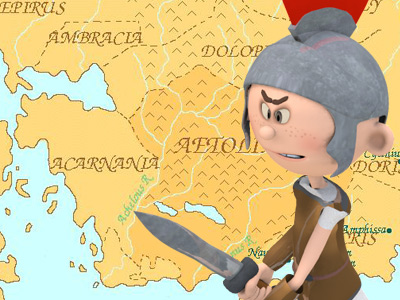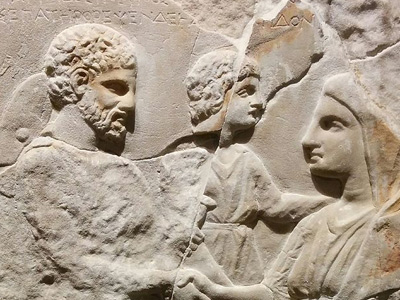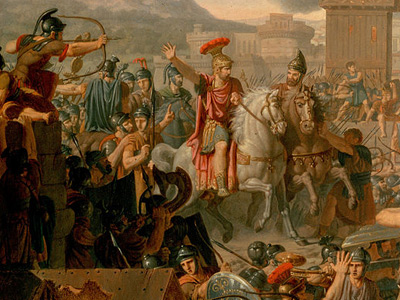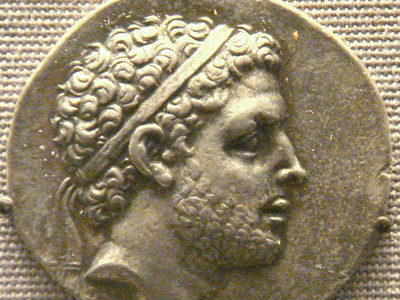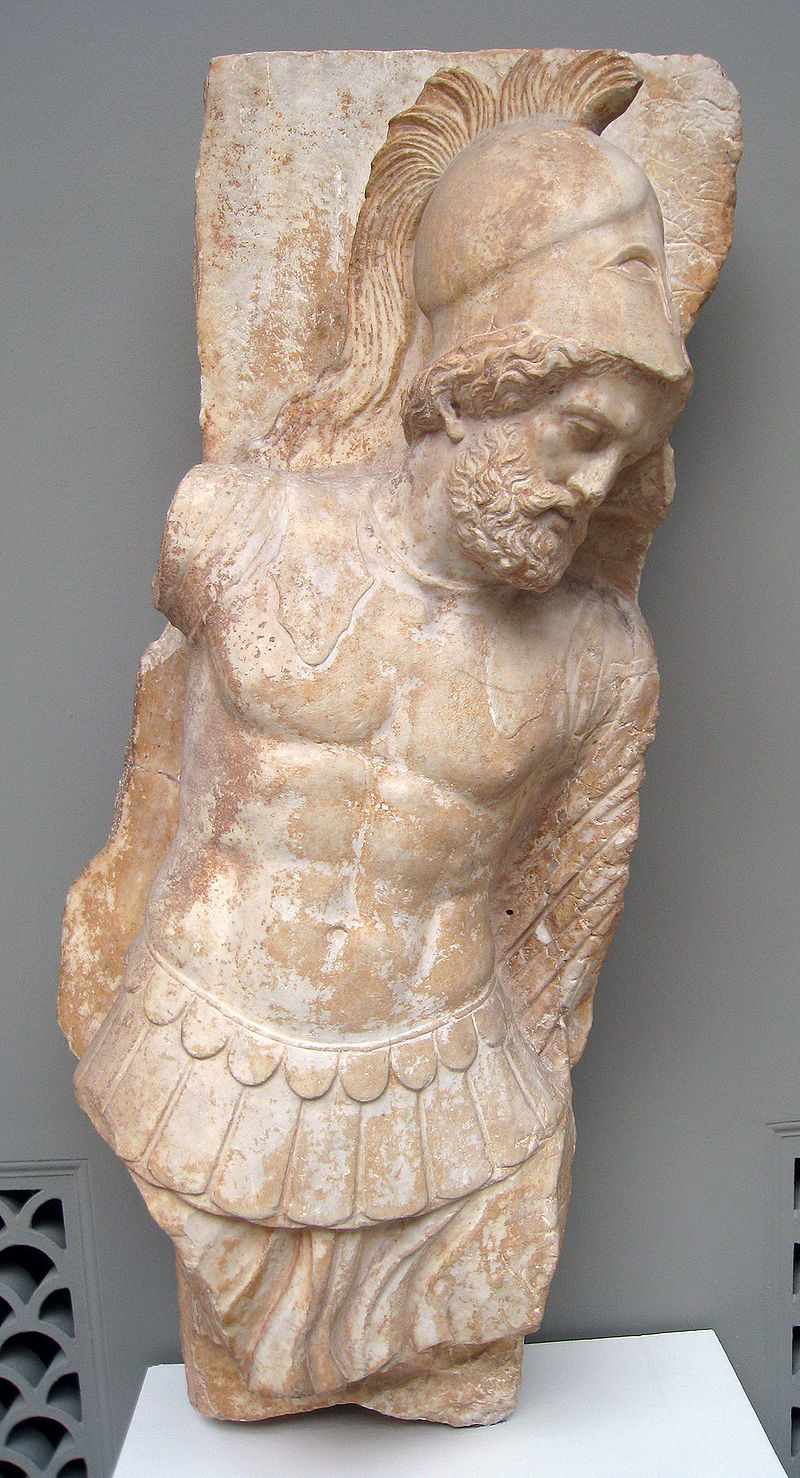Third Macedonian War (171–168 BC)
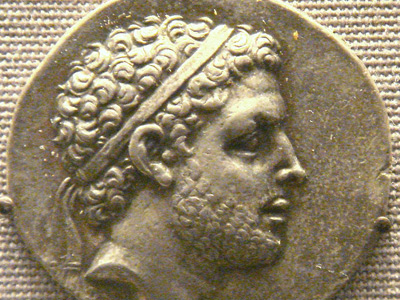
The Second Year of the War (170 BC)
Livy wrote that the consul Pulbius Licinius, frustrated with being ineffectual with the enemy, had turned against the Greeks. He mercilessly plundered several cities in Boeotia where he was wintering. The people of Coronea put themselves under the protection of the Roman senate, which decreed the restoring to freedom of the captives. Gaius Lucretius, the commander of the fleet, was even more ruthless and rapacious as was “oppressive to the allies, despicable in the sight of the enemy.” Perseus, in a surprise attack on the Roman The Roman Republic was a form of government of Rome and the era of the classical Roman civilization when it was run through public representation of the Roman people. Beginning with the overthrow of the Roman Kingdom (traditionally dated to 509 BC) and ending in 27 BC with the establishment of the Roman Empire, Rome's control rapidly expanded during this period - from the city's immediate surroundings to hegemony over the entire Mediterranean world. fleet stationed at Oreum (on the Island of, Euboea, next to Boeotia and Magnesia), captured five warships and twenty transports laden with corn and sunk the other ships. He then went to Thrace to help Cotys against the mentioned invasion by Autlebis, the chef of a Thracian tribe, and the Pergamenes. Epirus (on the west coast of Greece) went over to the Macedonians.
The Roman Republic was a form of government of Rome and the era of the classical Roman civilization when it was run through public representation of the Roman people. Beginning with the overthrow of the Roman Kingdom (traditionally dated to 509 BC) and ending in 27 BC with the establishment of the Roman Empire, Rome's control rapidly expanded during this period - from the city's immediate surroundings to hegemony over the entire Mediterranean world. fleet stationed at Oreum (on the Island of, Euboea, next to Boeotia and Magnesia), captured five warships and twenty transports laden with corn and sunk the other ships. He then went to Thrace to help Cotys against the mentioned invasion by Autlebis, the chef of a Thracian tribe, and the Pergamenes. Epirus (on the west coast of Greece) went over to the Macedonians.
The consuls for the year 170 BC were Aulus Hostilius Mancinus and Aulus Atilius Serranus. Macedon was assigned to Aulus Hostilius and the fleet and the coast of Greece to the praetor Gaius Hortensius.
Aulus Hostilius, was on his way to Macedon via Epirus. An Epirot leader wrote to Perseus to tell him to hurry there. However, the king was delayed. If he had attacked at the passage a river, the newly recruited troops would have been defeated. In any case, Aulus Hostilius was informed about this and changed his route. He left Epirus and sailed to Anticyra (on the north coast of the Gulf of Corinth, in Boeotia) and marched to Thessaly. He marched on the enemy straight away, but he was not more successful than his predecessor. He was defeated in a battle. Then he gave up his useless attempts first to force his way through Elimea (in south-western Macedon, it bordered with Thessaly and Magnesia) and then secretly march through Thessaly. Perseus anticipated all his moves. Livy wrote that Gaius Hortensius did not conduct his naval operations “with sufficient skill or success, for none of his acts deserves better to be remembered than his cruel and perfidious plundering of the city of the Abdertes when they endeavoured to avert, by entreaty, the intolerable burdens imposed on them.” Perseus made an incursion against Dardania (in southern Illyria), killed 10,000 and seized a large booty.
An embassy from Chalcis (the chief town of the island of Euboea) came to Rome to complain against the naval commander of the previous year, Gaius Lucretius, for plundering the city which was a friend of Rome, and the current naval commander, Lucius Hortensius, for keeping the rowdy sailors in lodgings in the town. Lucretius was put on trial and fined by the plebeian tribunes and the senate ordered Hortensius to free the men enslaved by Lucretius and not to let the sailors lodge on the island.
It was suspected that Gentius, the king of Illyria might side with Perseus. Therefore, the senate sent eight ships with 2,000 soldiers to Issa. Aulus Hostilius sent Appius Claudius to Illyria with 4,000 men to protect the neighbouring states. He gathered 8,000 soldiers form allies of various nationalities. He sent them to Lychnidus, in the territory of the Dassaretians (a tribe in Epirus, on the border with Illyria). Messengers from the nearby Uscana (in southern Illyria, it belonged to Perseus and had a Cretan garrison) told Appius Claudius that some people in the town were willing to hand it over to him. He did not ask for hostages as a safeguard and did not sent scouts. He encamped near the city and he set out at night, leaving 1,000 men to guard the camp. The troops were not well organised. They were stretched out in a long and irregular line and became separated in the dark. They did not see anyone on the walls and got close to the wall. The inhabitants made a sortie. Many of the Romans were killed and only 1,000 men escaped. Appius took the remains of his force to Lychnidus without taking care of the men who had straggled.
This and other reverses where reported back to Rome. The senate ordered two deputies to gather information on the situation in Greece. The deputies reported the successes of Perseus and the fear of the Greek allies about Perseus reducing many cities. They also reported that the troops of the consul (Pulbius Licinius) were thin because he had given leave to many of them to gain popularity.
HISTORY
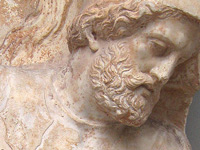
RESOURCES
This article uses material from the Wikipedia article "Third Macedonian War (171–168 BC)", which is released under the Creative Commons Attribution-Share-Alike License 3.0.
© Stories Preschool. All Rights Reserved.
